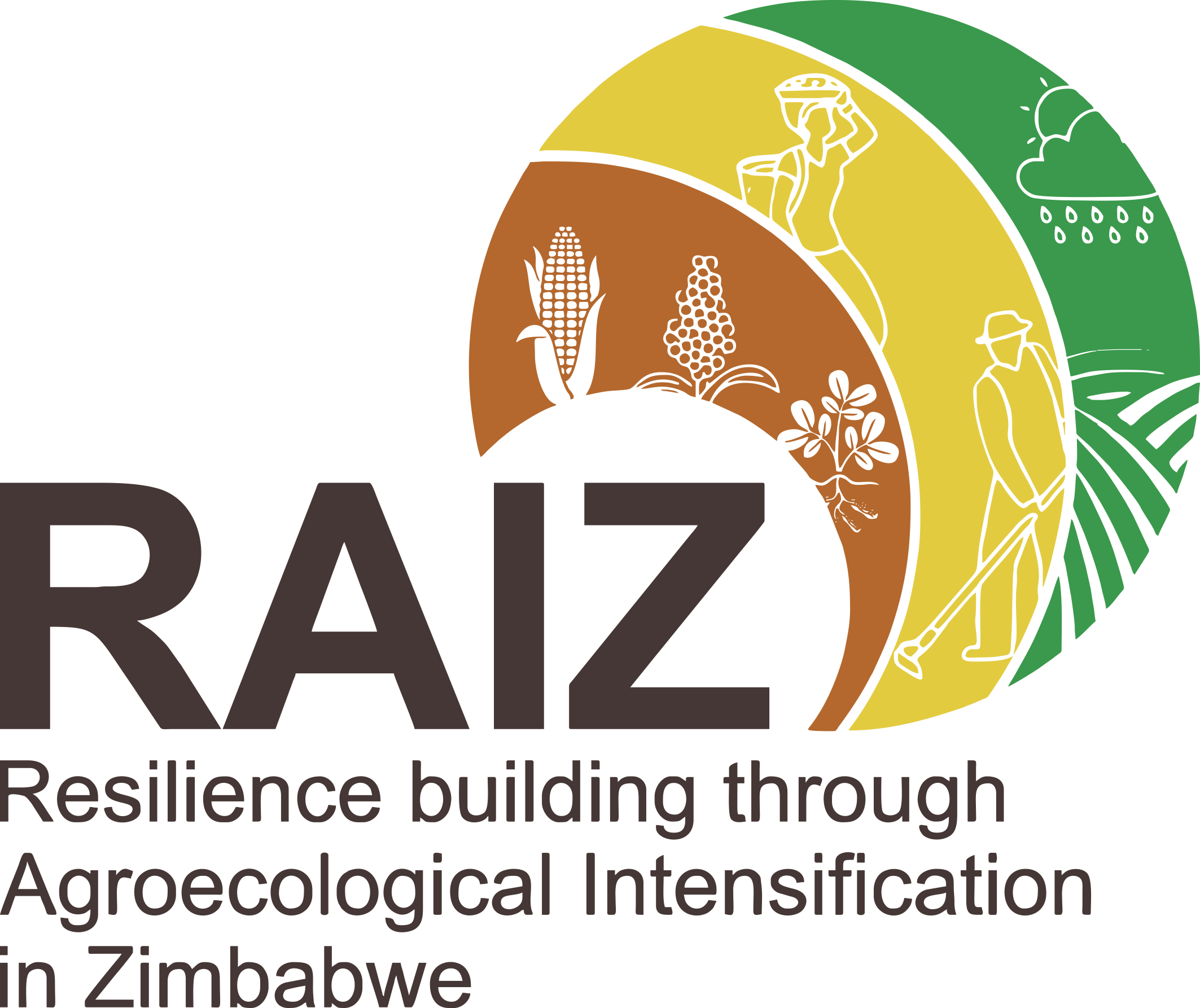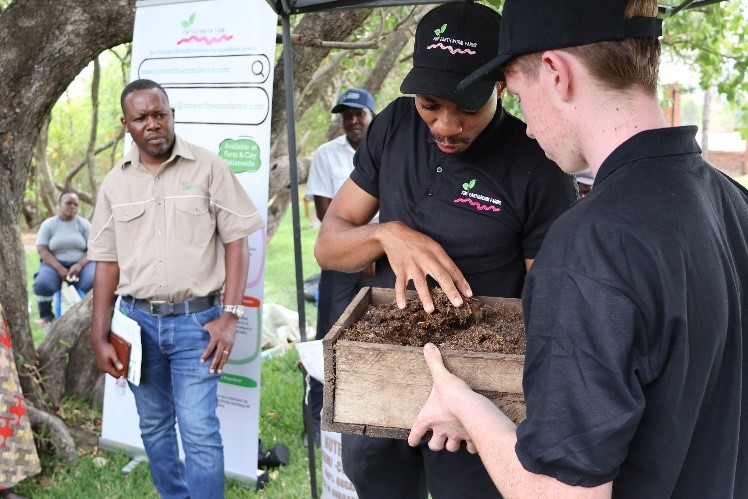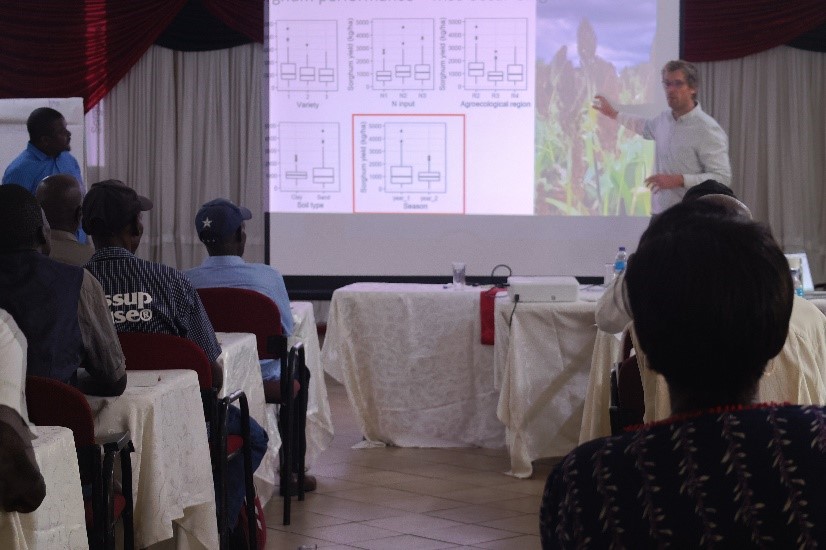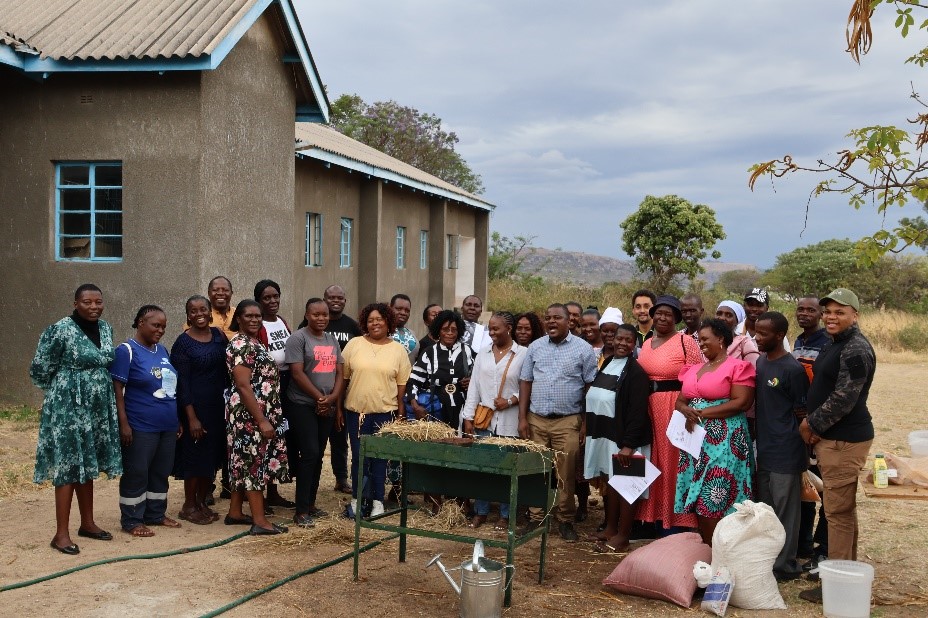Overview
The RAIZ project hosted two consecutive training and feedback meetings on agroecological practices from October 31 to November 1, 2024, involving 40 farmers from wards 8 and 10 in Mutoko and 28 farmers from ward 28 in Murewa. These events gathered farmers, extension officers, Agritex officers, and partner organizations, including CIMMYT, CIRAD, Fambidzanai Permaculture Center, Orgfert, Seed Co, and Easi Seeds. Key discussions, with facilitations from Agritex officers, focused on the results from the past agricultural season, biofertilizer production and application, and appropriate seed varieties, with a strong emphasis on fostering co-learning and advancing agroecological practices for resilience. It is believed that such initiatives will have a trickle effect from ward level to more areas, partners continue to work well with the farmers and extension officers.
Workshop objectives
The sessions aimed to:
- Share results from field experiments implemented in 2023/24 by CIMMYT, CIRAD and UZ partners
- Reflect and obtain feedback from farmers on what worked or failed to work
- Review and plan activities for the next season 2024/25
- Train farmers and partners with agroecological concepts and principles and create awareness of relevant AE technologies including inputs from our partners
2023/24 Season: Farmer Perspectives & Experiences
The 2023/24 season marked significant learning and experimentation for RAIZ project farmers, shared during the two-day sessions held in Mutoko and Murewa. Farmers engaged in targeted trials with recommended organic fertilizer rates and conservation agriculture (CA) methods. A total of 51 farmers participated in farmer-led experiments, with 30 testing CA techniques and 21 evaluating different organic fertilizer rates. Additionally, six learning centres supported the trials and featured demonstrations of maize varieties, maize-cowpea intercropping, sorghum, and cattle manure usage.
Despite facing variable rainfall ranging from 250mm to 500mm, which resulted in limited maize harvests, the trials emphasized understanding which soil amendments are most effective across different areas. This approach helps farmers avoid costly fertilizer investments by identifying locally affordable and sustainable soil enhancement options. Given the ongoing soil depletion and climatic challenges, the project underscored the need for timely preparation at the season’s start to maximize yield potential and resilience.
Lessons learnt from the last cropping season by Philimon and Sibusisiwe (discussion with farmers and extension)
- Increase mulch quantities, aiming for an average of 2.5 tonnes per hectare in CA practices, with a recommended thickness of 15 cm.
- Utilize rain gauges for precise measurement to guide planting and other seasonal decisions.
- Plant at the onset of the first rains to optimize growth potential.
- Mulching proved beneficial for soil resilience, retaining moisture even under intense sunlight.
- Maintain detailed records of planting dates, rainfall, weeding, pesticide, and fertilizer applications to track progress and outcomes.
- Mixed results on hydrogel use: three farmers observed benefits, while eight noted a reduction in effectiveness during prolonged dry spells.
- Practical knowledge gained on the application of bokashi, vermicompost, and atlas soil amendments.
- Field trials showed variability, with some plots thriving under high temperatures while others experienced significant crop stress.
- Adherence to advised practices remains critical, especially in the first implementation season.
- Yield outcomes from mulched plots included up to six buckets from one and 15 kg from another, emphasizing the importance of adequate mulching.
- Continued learning on effective weeding solutions, with some farmers finding specific herbicides helpful for ease of management.
Challenges faced by farmers
- Persistent termite issues affecting crop health and yield.
- Insufficient mulching materials after strong winds (chamupupuri), limiting soil protection.
- Delays in pesticide spraying, leading to gonye (armyworm) infestations.
- Limited communication among farmer groups, impacting coordination and knowledge sharing.
- Labor shortages, restricting timely field activities and crop maintenance.
- Cricket infestations posing additional pest management challenges.
Training topics
- Field Monitoring and Yield Assessment: 2022/23 season
- Climate services information
- Preparations for the next season
| Figure 3: ZimEarth Worms Farms |
Throughout the process, ensuring no flies around the heap is critical, as it signals proper fermentation conditions. Charova’s guidance empowers farmers to make high-quality compost that enriches soil naturally and sustainably, promoting resilience in the face of seasonal variability.
Zim Earthworm Farms, represented by Tapiwa Hwingwiri, provided an overview of their initiatives in sustainable agriculture through earthworm-driven composting, also known as vermiculture. This process converts organic waste into nutrient-rich compost, enhancing soil fertility while encouraging organic farming practices across Zimbabwe. The eco-friendly products from Zim Earthworm Farms reduce dependence on chemical fertilizers, contributing to healthier food systems and sustainable livelihoods. The farm showcased a diverse product lineup, including Earthworm Pooptea, Nutrich vermicompost, Vermio Septic Tank Cleaner, Vermio Garbage Smell Killer, and a snake repellent, among others.
Orgfert Zimbabwe shared insights into their range of organic products available on the market, including 100% pure organic fertilizers and organic-enriched options. Orgfert is committed to transforming organic waste into nutrient-dense fertilizers that enhance soil health and agricultural productivity. By converting waste into valuable resources, Orgfert champions sustainable farming practices that not only boost crop yields but also reduce environmental impact
Mutoko District Moving Forward
- Learning Centers and Demonstrations: This season, the four learning centers in Mutoko will establish demonstration plots for sorghum, incorporating products from Orgfert and Vermi compost to enhance soil fertility.
- Biofertilizer Demonstrations: Select 4–5 farmers to set up biofertilizer demos using fermented cow manure, Apiture insecticide, and SN, with field visits planned for observation during field days.
- Communication and Collaboration: Add Orgfert, Fambidzanai, and Zim Earthworm representatives to the farmer WhatsApp group for seamless coordination and support.
- Trial Protocols: For main trials, replace hydrogel with intercropping options like pigeon pea or cowpea to promote soil health and diversity.
- Plot Management: Farmers should ensure that no external organizations access CIMMYT demo plots without prior approval from the extension officer (Mudhumeni).
- Integrity in Practices: Commitment to fair and honest practices (Varimi, hatidi chitsotsi).
Murehwa District Moving Forward
The following actions and guidelines have been established to optimize plot management and enhance the effectiveness of the trials in the upcoming season:
- Hydrogel Plot Replacement: All hydrogel plots in the main trials will be replaced with intercropping of pigeon pea (Nyandoro) and cowpea (Nyemba), aiming to improve soil fertility, diversify cropping, and assess additional benefits of legume intercropping.
- Scheduled Planting: Planting is set to begin next week as all inputs are distributed to farmers. Timely input distribution will support the coordinated start of trials across all plots.
- Plot and Treatment Maintenance: Farmers are encouraged to rigorously maintain the assigned plots and adhere to designated treatment protocols to ensure data accuracy and consistency.
- Farmer Evaluations Led by Extension: Evaluations will be conducted at three critical stages—early, mid, and end of season—under the guidance of extension officers to monitor progress, note challenges, and gather insights on the trials.
- Farmer Field Day/Tour: A field day will be organized to allow farmers and stakeholders to tour the plots, observe trial progress, and share insights on techniques and treatments being applied.
- Strict Weed Control: Weeds must be controlled before they exceed 10 cm in height to reduce competition with crops and ensure robust growth.
- Mulching Continuity: Despite initial challenges with mulching last week, most plots have successfully retained the mulch, providing a protective soil cover to conserve moisture and control weeds.
- Consultation Requirement: No plot modifications or trial interventions should be conducted without consulting extension officers and CIMMYT representatives. This ensures that trials remain consistent and data integrity is upheld.
- Bokashi Preparation Demonstration: If resources allow, Fambidzanai will demonstrate the preparation of bokashi fertilizer, providing farmers with a hands-on understanding of this organic soil amendment process.
Read the Full Context Here:
Farmer Training in Mutoko_Murehwa Districts_Capacity Building







